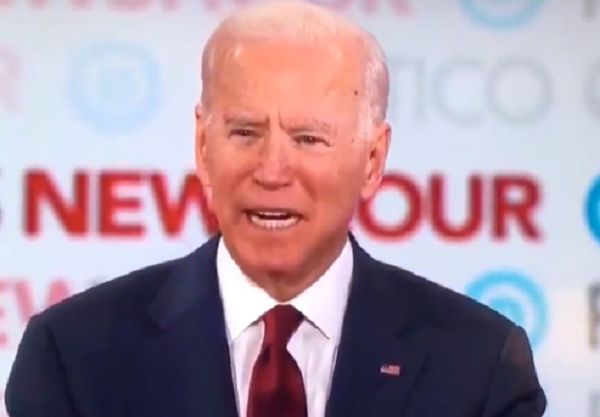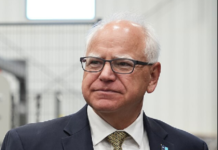President Joe Biden’s trillion-dollar infrastructure package, which was aimed at constructing a nationwide electric vehicle (EV) charging network, has not yet produced a single charger despite being in effect for two years.
The 2021 Infrastructure Investment and Jobs Act (IIJA) allocated $7.5 billion specifically for electric vehicle chargers. This fund consists of $5 billion for the National Electric Vehicle Infrastructure (NEVI) Formula Program and an additional $2.5 billion for charging and fueling infrastructure, which can be used at the discretion of the authorities.
The intention behind this substantial investment was to promote EV ownership and reduce carbon emissions, as part of the federal government’s ambitious agenda. However, the Joint Office of Energy and Transportation, established by the IIJA, has only distributed $101.5 million for seven state NEVI awards.
Furthermore, construction has only commenced on two projects, located in Columbus, Ohio, and Pittston, Pennsylvania. At this rate, the billion-dollar program, which aims to establish a network of 500,000 chargers and distribute $5 billion within five years, will only support a limited number of projects and allocate a mere $250 million during that timeframe.
“Too many members of Congress think ‘Field of Dreams’ is a blueprint for infrastructure: build it and they will come,” Daren Bakst, the director of the Competitive Enterprise Institute’s Center for Energy and Environment, said in a statement.
“No, they won’t come.
“Because Americans didn’t want EVs when this wasteful spending was passed and they don’t want them now, even with all the massive subsidies and incentives to buy EVs.”
Car dealers are persistently cautioning about the declining interest in electric vehicles (EVs), leading manufacturers to reconsider their EV strategies, according to Bakst.
As reported by Slay News, a letter addressed to President Biden last month expressed opposition to any EV mandate from a coalition of car dealers across the nation. They highlighted that the demand for EVs has reached a standstill and emphasized the abundance of expensive electric vehicles sitting unsold on their lots.
In addition, Bakst urged Congress to completely defund the NEVI program in order to save taxpayers’ money.
“Market realities influence the states that play a central role in whether EV chargers will be built,” Bakst continued.
“Therefore, it shouldn’t be a surprise that no EV chargers have been built using the $7.5 billion.
“States don’t want to waste time and money on building EV chargers that will fail.”
“The lack of demand for EVs is part of the equation, but so too are the technological shortcomings of EVs and the rural nature of many states,” he said.
“Then there’s also the Biden administration imposing inflexible and stringent federal requirements, something that states have said will cause problems in implementing the NEVI program.
“As it is, more than half of the states have not even started soliciting bids for EV chargers.”
The Joint Office of Energy and Transportation has recently announced the recipients of seven public conditional NEVI awards in various states including Ohio, Hawaii, Maine, Colorado, Pennsylvania, Alaska, and Kentucky. Furthermore, it is worth mentioning that 17 states are currently in the midst of soliciting additional proposals and applications for upcoming EV charging station projects. It is important to note that this process can be quite time-consuming, often taking several months or even years to complete.
“Under the Biden-Harris Administration, all 50 states plus Puerto Rico and D.C. have received historic funding to advance, for the first time in the nation’s history, the buildout of a convenient and reliable national charging network,” a Joint Office spokesperson told Fox News Digital.
“Since the President took office there has been a 70% increase in charging ports now in place, and as states move quickly and deliberately to energize even more EV chargers stamped Made-in-the-USA, Americans can be confident that we are on track to meet our ambitious goals,” the spokesperson added.
The NEVI Program, implemented by the IIJA, aims to allocate funding to all 50 states. These states, in turn, distribute the funding to private developers responsible for constructing the charging stations.
Apart from the objectives of disbursing the entire $5 billion allocated for the program by 2026 and establishing a total of 500,000 chargers, the program also emphasizes the construction of a charger at least every 50 miles along major highways in the United States.
“We need to move much faster,” said Ben Prochazka, the executive director of the Electrification Coalition, a nonprofit group that advocates for the adoption of EVs on a mass scale.
“We applaud the seven states that have awarded funding,” he continued.
“We continue to urge states to accelerate their work to issue [requests for proposal] and work with vendors to create a national charging network that is critical to accelerating electrification.”
In the realm of the NEVI program, the Columbus project has been hailed by the Biden administration as a significant achievement. Although groundbreaking took place in October, it is anticipated that the project will not be operational until early next year, a span of over 24 months since the IIJA was enacted and signed into law in late 2021.
According to the Ohio Department of Transportation, the project will encompass four chargers, which may require up to 40 minutes to provide an electric vehicle with an 80% charge.
Similarly, the Pittston project will comprise four 350-kilowatt charging ports situated in a highway service area.
Utilizing NEVI funds, both Ohio and Pennsylvania have devised plans to construct numerous additional fast-charging stations throughout their respective states by the conclusion of 2024.
Furthermore, apart from the NEVI program, the Department of Transportation’s Charging and Fueling Infrastructure (CFI) Discretionary Grant Program, which has been allocated $2.5 billion, is yet to be disbursed or awarded. The agency declared in March that it would commence accepting applications for CFI’s two sub-programs.
“Thanks to the record federal investment in President Biden’s Investing in America agenda, the number of publicly available charging ports has grown by nearly 70% and EV sales have tripled since he took office,” White House spokesperson Robyn Patterson told Fox News Digital.
“So far, states like Ohio and Pennsylvania have already broken ground on their federally funded chargers, and thousands more are on the way across the country,” she continued.
“We’re on track to build out a national network of 500,000 publicly accessible chargers by 2026 — fulfilling the President’s campaign goal four years early.”




